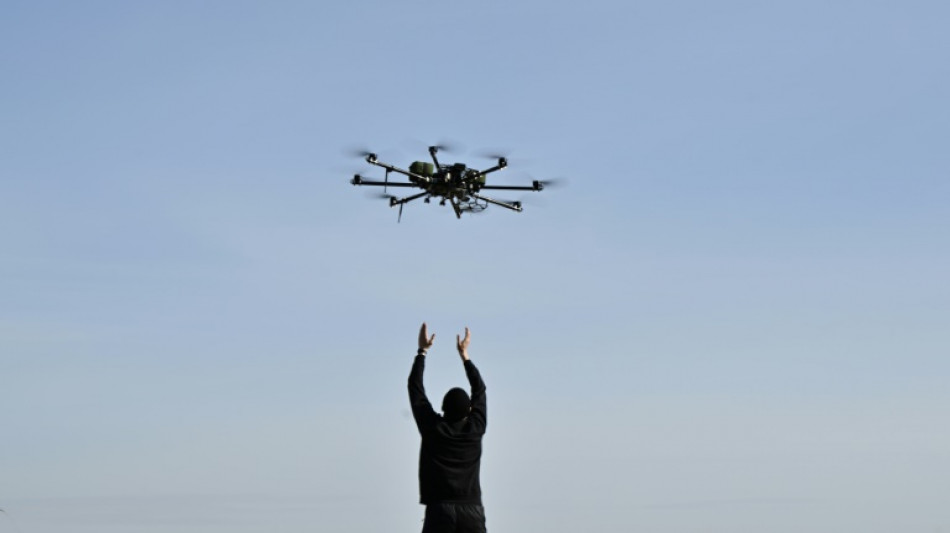
-
 Interim Venezuela leader to visit US
Interim Venezuela leader to visit US
-
Australia holds day of mourning for Bondi Beach shooting victims

-
 Liverpool cruise as Bayern reach Champions League last 16
Liverpool cruise as Bayern reach Champions League last 16
-
Fermin Lopez brace leads Barca to win at Slavia Prague

-
 Newcastle pounce on PSV errors to boost Champions League last-16 bid
Newcastle pounce on PSV errors to boost Champions League last-16 bid
-
Fermin Lopez brace hands Barca win at Slavia Prague

-
 Kane double fires Bayern into Champions League last 16
Kane double fires Bayern into Champions League last 16
-
Newcastle pounce on PSV errors to close in on Champions League last 16

-
 In Davos speech, Trump repeatedly refers to Greenland as 'Iceland'
In Davos speech, Trump repeatedly refers to Greenland as 'Iceland'
-
Liverpool see off Marseille to close on Champions League last 16

-
 Caicedo strikes late as Chelsea end Pafos resistance
Caicedo strikes late as Chelsea end Pafos resistance
-
US Republicans begin push to hold Clintons in contempt over Epstein

-
 Trump says agreed 'framework' for US deal over Greenland
Trump says agreed 'framework' for US deal over Greenland
-
Algeria's Zidane and Belghali banned over Nigeria AFCON scuffle

-
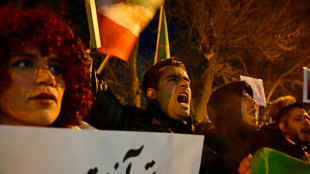 Iran says 3,117 killed during protests, activists fear 'far higher' toll
Iran says 3,117 killed during protests, activists fear 'far higher' toll
-
Atletico frustrated in Champions League draw at Galatasaray

-
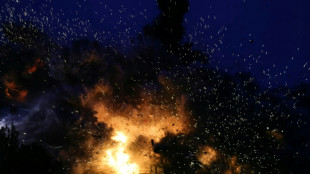 Israel says struck Syria-Lebanon border crossings used by Hezbollah
Israel says struck Syria-Lebanon border crossings used by Hezbollah
-
Snapchat settles to avoid social media addiction trial

-
 'Extreme cold': Winter storm forecast to slam huge expanse of US
'Extreme cold': Winter storm forecast to slam huge expanse of US
-
Jonathan Anderson reimagines aristocrats in second Dior Homme collection
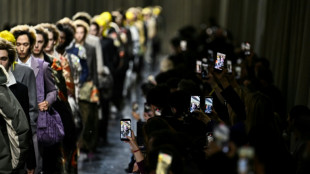
-
 Former England rugby captain George to retire in 2027
Former England rugby captain George to retire in 2027
-
Israel launches wave of fresh strikes on Lebanon
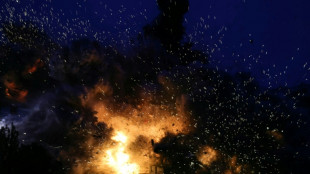
-
 Ubisoft unveils details of big restructuring bet
Ubisoft unveils details of big restructuring bet
-
Abhishek fireworks help India beat New Zealand in T20 opener
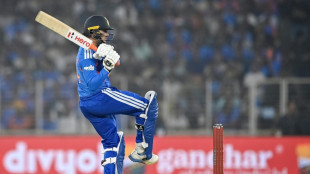
-
 Huge lines, laughs and gasps as Trump lectures Davos elite
Huge lines, laughs and gasps as Trump lectures Davos elite
-
Trump rules out 'force' against Greenland but demands talks

-
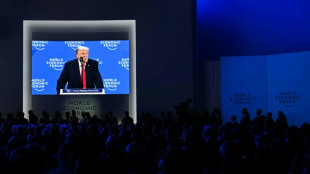 Stocks steadier as Trump rules out force to take Greenland
Stocks steadier as Trump rules out force to take Greenland
-
World's oldest cave art discovered in Indonesia

-
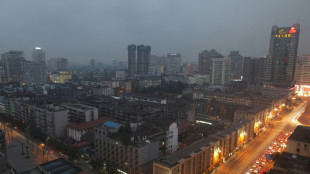 US hip-hop label Def Jam launches China division in Chengdu
US hip-hop label Def Jam launches China division in Chengdu
-
Dispersed Winter Olympics sites 'have added complexity': Coventry

-
 Man City players to refund fans after Bodo/Glimt debacle
Man City players to refund fans after Bodo/Glimt debacle
-
France's Lactalis recalls baby formula over toxin

-
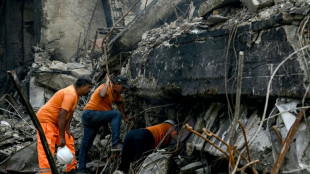 Pakistan rescuers scour blaze site for dozens missing
Pakistan rescuers scour blaze site for dozens missing
-
Keenan return to Irish squad boosts Farrell ahead of 6 Nations

-
 US Treasury chief accuses Fed chair of 'politicising' central bank
US Treasury chief accuses Fed chair of 'politicising' central bank
-
Trump rules out force against Greenland but demands 'immediate' talks

-
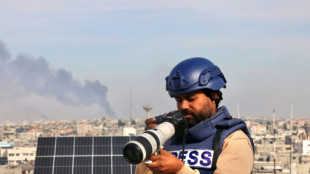 Israeli strike kills three Gaza journalists including AFP freelancer
Israeli strike kills three Gaza journalists including AFP freelancer
-
US Congress targets Clintons in Epstein contempt fight

-
 Huge lines, laughs and gasps as Trump addresses Davos elites
Huge lines, laughs and gasps as Trump addresses Davos elites
-
Trump at Davos demands 'immediate' Greenland talks but rules out force

-
 Australia pauses for victims of Bondi Beach shooting
Australia pauses for victims of Bondi Beach shooting
-
Prince Harry says tabloid coverage felt like 'full blown stalking'

-
 Galthie drops experienced trio for France's Six Nations opener
Galthie drops experienced trio for France's Six Nations opener
-
Over 1,400 Indonesians leave Cambodian scam groups in five days: embassy

-
 ICC rejects Bangladesh's plea to play T20 World Cup matches outside India
ICC rejects Bangladesh's plea to play T20 World Cup matches outside India
-
Prince Harry says UK tabloid court battle in 'public's interest'

-
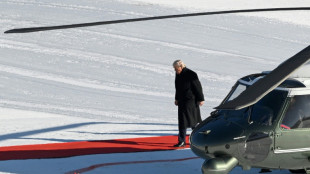 Trump lands in Davos to push Greenland claims
Trump lands in Davos to push Greenland claims
-
Balkan wild rivers in steady decline: study

-
 Injured Capuozzo misses out on Italy Six Nations squad
Injured Capuozzo misses out on Italy Six Nations squad
-
Mourners pay last respects to Italian icon Valentino


Cheap drones 'cannot match' artillery power in Ukraine: experts
Ukraine is relying on the massive use of drones to compensate for an artillery shell shortage and undermine Russian military capabilities, but experts warned they cannot tip the balance.
Both drones used for strikes hundreds of kilometres away and commercial drones are starting to dominate the battlefield.
In particular, so-called First Person View (FPV) drones allow their pilots to see live images of the ground as if they were on board and can locate enemy units and, if armed with explosives, attack them from within a few kilometres.
"At the moment in Ukraine, we are seeing the use of drones on an unimaginable scale, we are really talking about tens and hundreds of thousands of drones on the battlefield," Ulrike Franke, a researcher at the European Council on Foreign Relations (ECFR), told AFP.
In its 2024 budget Kyiv earmarked 1.15 billion euros ($1.25 billion) for drones, and President Volodymyr Zelensky announced that the country will produce "one million drones" this year, after setting up a specific drone branch in February.
Kyiv's direction comes as its supporters are trying to bolster Ukrainian stocks -- London is set to deliver more than 10,000 drones, of which one thousand are FPV drones, and Paris is preparing to order 2,000 kamikaze drones, some of which will be used in Ukraine.
Ukrainian officials estimate between 100,000 and 120,000 drones are needed monthly.
Whereas it needs 200,000 to 250,000 artillery shells per month for a major offensive or 75,000 to 90,000 to sustain the war defensively, according to an Institute for Strategic Studies (IISS) review.
Western backers largely depend on US stocks to sustain defence, but Kyiv does not have enough ammunition to launch a major offensive next year, it added.
So "Ukraine can reduce its requirements for artillery ammunition by significantly increasing production of strike drones" continued Michael Kofman and Franz-Stefan Gady in the IISS review.
Drones are "capable of reproducing many of the functions of artillery and missiles at a fraction of the cost", agreed Mykola Bielieskov of the Atlantic Council.
A small commercial drone costs just a few hundred euros, whereas a simple anti-tank missile, artillery shell or remotely operated munition costs several thousands.
- "Not ideal" -
Ukrainian FPV drones are currently responsible for between 65 and 85 percent of the destruction of Russian positions, according to a French military source.
But Ulrike Franke warned: "They use drones because they can produce or buy them, but it is not ideal."
FPV drones have a small load capacity of just hundreds of grams of explosive and a few kilograms for the largest commercial drones.
"Even large numbers of small drones cannot match the potency of artillery fire," agreed Stacie Pettyjohn in a study by American security think-tank "CNAS".
Drones can supplement indirect fire weapons, but they are not substitutes, she added.
In September, the New York Times reported that less than a third of drone strikes hit their target, as the machines can easily be jammed or disrupted by electronic countermeasures.
Ukraine can no longer count on superiority in the field of drones.
In 2022 Ukraine had a "9-to-1 advantage" in commercial drones but this lead has now "essential disappeared", Pettyjohn added.
"While the Russian Ministry of Defence was slow to catch up, Russian troops had quickly realized the utility of commercial quadcopters and volunteer groups had emerged to provide frontline soldiers with drones and the necessary training."
Russia also relied heavily on FPV kamikaze drones to thwart Ukraine’s counter-offensive last summer.
For Pettyjohn, although drones offer new capabilities, they ultimately make it more difficult to "concentrate forces, achieve surprise, and conduct offensive operations" so they will not make "truly disruptive change".
burs-mra/tq/ico/spb/cw
R.Flueckiger--VB




